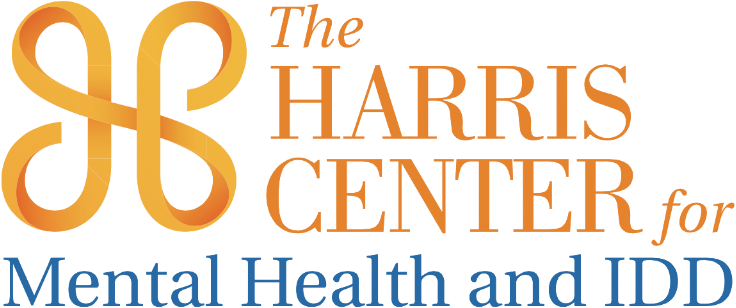
Adverse childhood experiences (ACEs) can profoundly impact an individual's health and well-being, increasing their risk for physical and mental health conditions and social and economic challenges. It is essential for healthcare providers to understand this impact and provide trauma-informed care and support that is sensitive to the unique needs of those who have experienced adversity in childhood. This article explores the importance of providing such care to patients with ACEs and offers practical strategies for healthcare providers to support and care for these individuals effectively. Childhood abuse, for example, can have significant and long-lasting effects on adults, including mental health issues, trust and communication difficulties, and physical health problems.
In a groundbreaking study conducted in1995 by the Centers for Disease Control and Prevention (CDC) and Kaiser Permanente, the Adverse Childhood Experiences (ACE’s) study examined the nature and long-term effects of childhood trauma. The study referred to three specific kinds of adversity children faced in their home environment: various forms of physical, sexual, and emotional abuse, neglect, and household dysfunction, which included witnessing domestic violence or divorce between parents, experiencing family members or relatives going to jail, and living in a household where there was substance abuse. After evaluating the questionnaire responses of over 17,000 participants, the study found that the more ACEs a person experienced, the more likely they were to experience mental and physical health problems such as cardiovascular disease, diabetes, obesity, depression, substance abuse, poor academic achievement, and relationship issues throughout life.
As a child and adolescent psychiatrist at The Harris Center for Mental Health, I work with many children who have experienced abuse and neglect. Many of these youth have difficulty regulating their emotions, making it much harder for them to control their behavior and respond appropriately to social situations, even long after their abuse has ended. When children experience trauma repeatedly, it changes their brain’s function to a fight-or-flight response. They get stuck in this default mode and can’t escape it when encountering various situations.
It is important to remember that our brains do not fully develop till around the age of 22. Trauma can have a significant impact on brain development and well-being. Children and young adults start to create narratives around their own safety and the safety of their schools, homes, and communities based on what they are experiencing. Trauma events can tend to make them think that the world is an unsafe place.
For a better understanding of what children of trauma and abuse are going through — imagine being in the woods, and you see a bear. You perceive danger; naturally, your cortisol levels shoot up, and you enter this fight or flight response. Once the bear leaves, the threat is gone, and your cortisol levels drop. But imagine if that bear was there every single minute of the day. Your cortisol levels stay elevated, and your fight or flight stays in overdrive. When your brain is in an overactive stress response, it can also significantly impact the development of other areas of the brain, such as memory, learning, emotional regulation, and decision-making. But the adolescent brain is also very malleable, and kids are remarkably resilient.
Survivors often walk around in this world feeling completely unsafe. It is important for children who experience trauma to receive appropriate support and interventions to help them heal and recover. For these survivors to heal from their abuse and trauma, their safety has to be established first.
Trauma-Informed Care
At the Harris Center for Mental Health, trauma-informed care is one of the many interventions we use to help survivors heal and recover in an environment where they feel safe and secure during their treatment. Trauma-informed care shifts the focus from “What’s wrong with you? to “What’s happened to you? This care approach allows our teams to engage more fully with the patients, learn more about what they have gone through in their lives, and help them get to a safer place.
Trauma-informed care seeks to:
- Realize the widespread impact of trauma and understand paths for recovery
- Recognize the signs and symptoms of trauma in patients, families, and staff
- Integrate knowledge about trauma into policies, procedures, and practices; and
- Actively avoid re-traumatization
During a one-on-one patient session, we interview the patient to get a complete picture of their life situation — past and present — in order for us to provide the appropriate care for them. Some of the questions we typically ask include, “What was your childhood like? Were both your parents actively involved in your life? Who raised you? Did you face any challenges at home and in school? Did you live with anyone who had mental illness? The objective during these patient conversations is to identify significant events in that person’s life that could impact them as they enter adulthood.
The other part of trauma-informed care is finding ways to ensure they feel safe as they move forward in their recovery. By using a trauma-informed care approach, we can reduce the risk of re-traumatization by providing tools for coping with stressors, (i.e., breathing exercises, meditation), preventative strategies to avoid or overcome triggers, and a healthy foundation of social support. Once patients can identify potential triggers, they can find ways to avoid or cope with symptoms.
Trauma is on a wide spectrum, and it affects everybody differently. People can be exposed to the same traumas but their outcomes might be different. Some children develop resilience — the ability to overcome traumatic experiences. Resilience can be influenced by a variety of factors, such as genetics, environment, social support, and individual coping strategies. Some people may be more naturally resilient than others but everyone has the potential to develop resilience. Just because a person has many ACE’s doesn’t mean that later health or mental issues are inevitable.
Supporting one another
Understandably, people feel shame and guilt for having mental health problems. But taking that first step and talking to someone can help alleviate these unhealthy feelings. Many people have gone through traumatic situations and disturbing life events and should never feel alone.
It is so important to seek help when needed. Here at our Center, we have the expertise to help patients with their mental health situations and help them break free from this unhealthy cycle.




